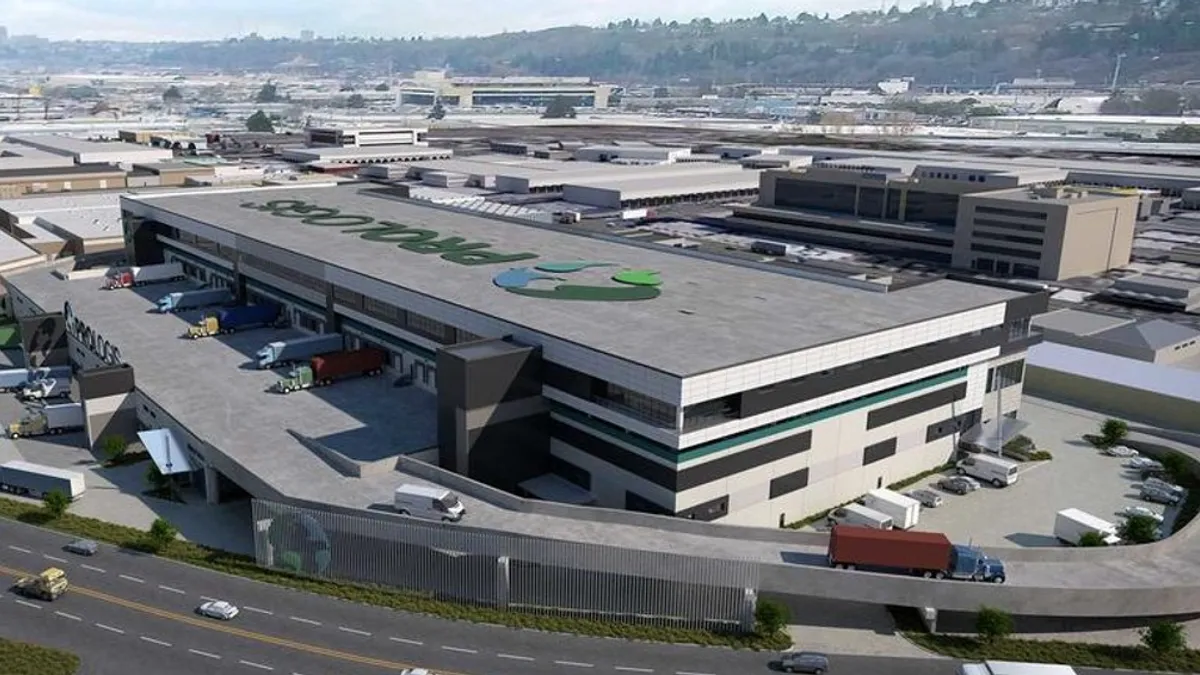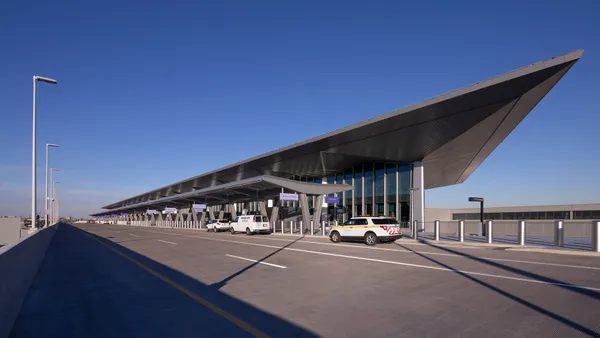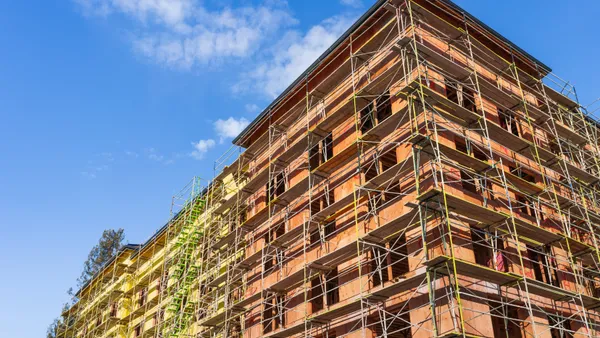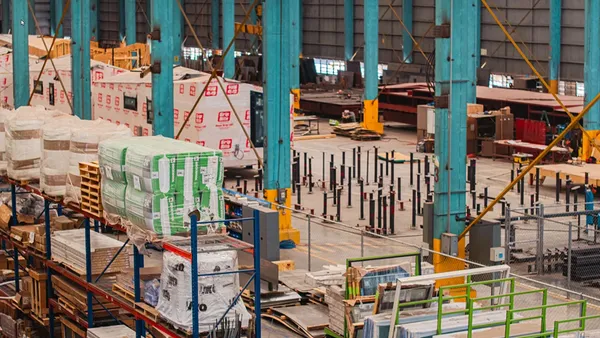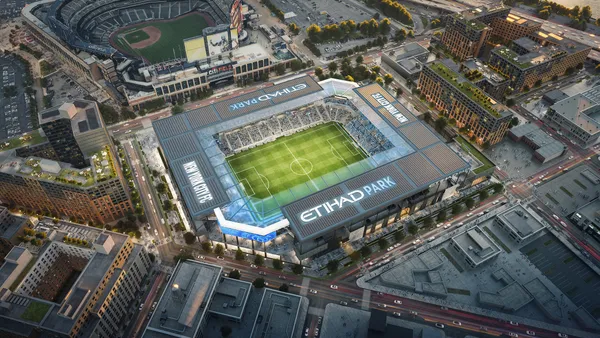Dive Brief:
- Five multistory warehouses are being built in at least three U.S. markets this year, as developers look for ways to meet rising industrial real estate demand amid high e-commerce growth, industrial real estate firm CBRE said in a report.
- The markets — Seattle, New York City and San Francisco — are primed for experimentation due to their high population density, strong e-commerce penetration and tight market conditions for last-mile fulfillment facilities.
- "If successful, these new projects could set an example for developers in other cities that face similar conditions," CBRE said — cities like Miami, Chicago, Los Angeles, Dallas, Houston and Atlanta.
Dive Insight:
If tenants can bear the costs, carriers do not struggle to access the facilities and the location proves useful to fulfill products faster, multistory warehouses may well become a real estate trend.
"I think we'll know more toward the end of the year, whether or not we're going to see more of this in 2019," Matt Walaszek, a senior research analyst at CBRE, told Construction Dive's sister publication Supply Chain Dive. "It's definitely a wait and see."
None of the five developments have a tenant backing them yet, Walaszek said. Many, of course, are still being built.
"It remains to be seen if tenants will take on rents that high for logistics space," Walaszek said, citing developers in New York were planning to charge a "bullish" price of more than $30 per square foot. "But if they have no choice, if they need to be close to the urban core or close to the consumers, then they may choose to take that on."
The project in Seattle is among the first to be completed. It shows some of the challenges with building a multistory warehouse, not the least of which is accommodating trucks to access the loading docks.
"If you look at that ramp, it kind of ramps around the building," Walaszek said. "It has to accommodate these huge big rigs — 53-foot trucks — that we have here in the U.S. ... What that does to traffic congestion? That's another concern."
Seattle, he said, is a bit of a pilot project for the market since it is the first to be finished. Last Walaszek heard, a "last-mile" user was interested in the development, but nothing had been signed yet.
Choosing markets carefully will be key. "If you look at places like Atlanta or Dallas, we may not see this at all. It may not make sense," he said. "But in New York, Seattle, San Francisco, I think this could be a really viable development."



